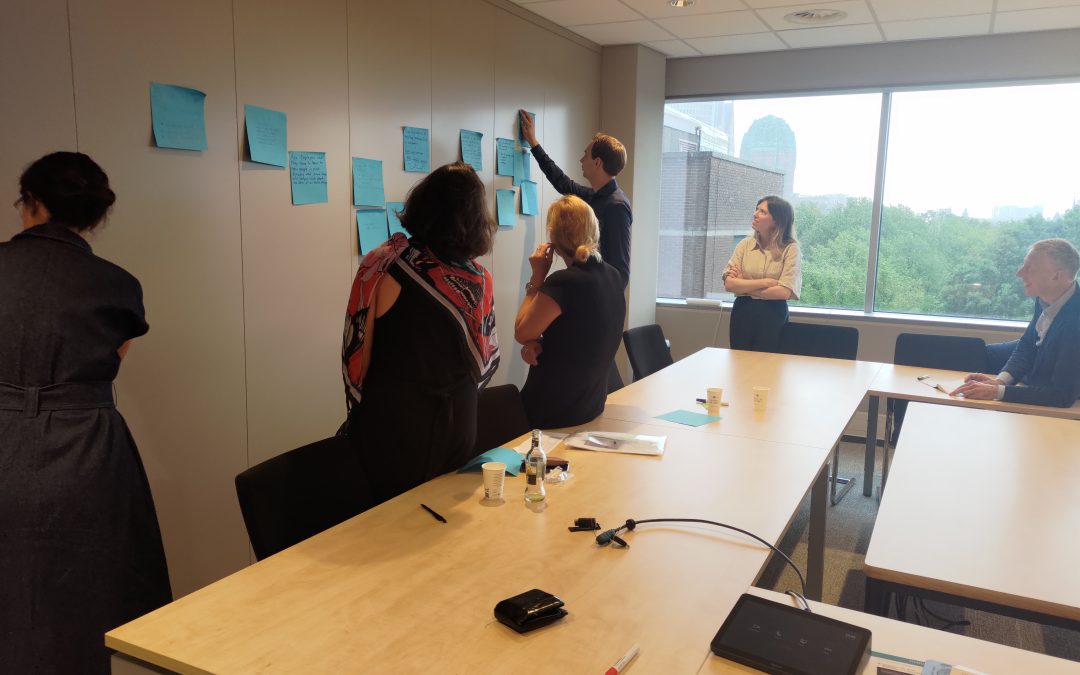The Netherlands is probably one of the most developed countries when it comes to digital credentials. Yesterday, around 30 people from different institutions, initiatives, companies and organisations came together in a workshop organized by OpenBadges Nederland. The topic at hand was an important factor for a digital credential ecosystem: how can we connect skills with credentials in a trusted way? How can we make the engine of skills, recognition and digital credentialing move forward?
As the Netherlands is a country that is highly decentralised, and where a lot of resources and decision making are allocated on a regional or municipality level, some discussions actually revolved around the ease of recognition on a small or local scale, alongside the desire to create bigger value and recognition through national or international alignment and connection.
On a small-scale, local level, skills recognition and badging are easier to roll out, as there are direct interaction and validation possibilities. You can actively develop a mutual language around needs and resources, and typically it is easier to moderate different interests and commitments (from the sides of educators, learners and employers).
The limitation of a small community is in the value of skills – skills representation through digital credentials remain a local currency, and the trust possible on a local level cannot be easily transferred to a broader context. Some interesting questions came up in the discussions:
- The value of digital skill recognition is very much dependent on the demand side: the employers. Only when employers accept and recognize skills will the value for the skill-bearers / learners be materialized.
How can we convince and support employers to use skills-based hiring? - The value of digital skill recognition for the user requires transferability and mobility, along learning and career paths. How can we get to a universal language / taxonomy that allows for an “exchange” of skills from one context to another, from one industry to another, from one region to another?
And
- How can we ensure that skills are collected and recognized in an easy, controllable way with a self-sovereign user, and with a forward-focussed, not backward, perspective (“what can I do with them?”, instead of “what have I done?”)?
I think it becomes clear that all these questions are connected, interdependent. They mirror the big levers that can help matching in-demand skills with skill-bearers, and show ways to create balance on both sides.
We could only scratch the surface this time, but it became evident what has to happen for digital credentials to scale.





